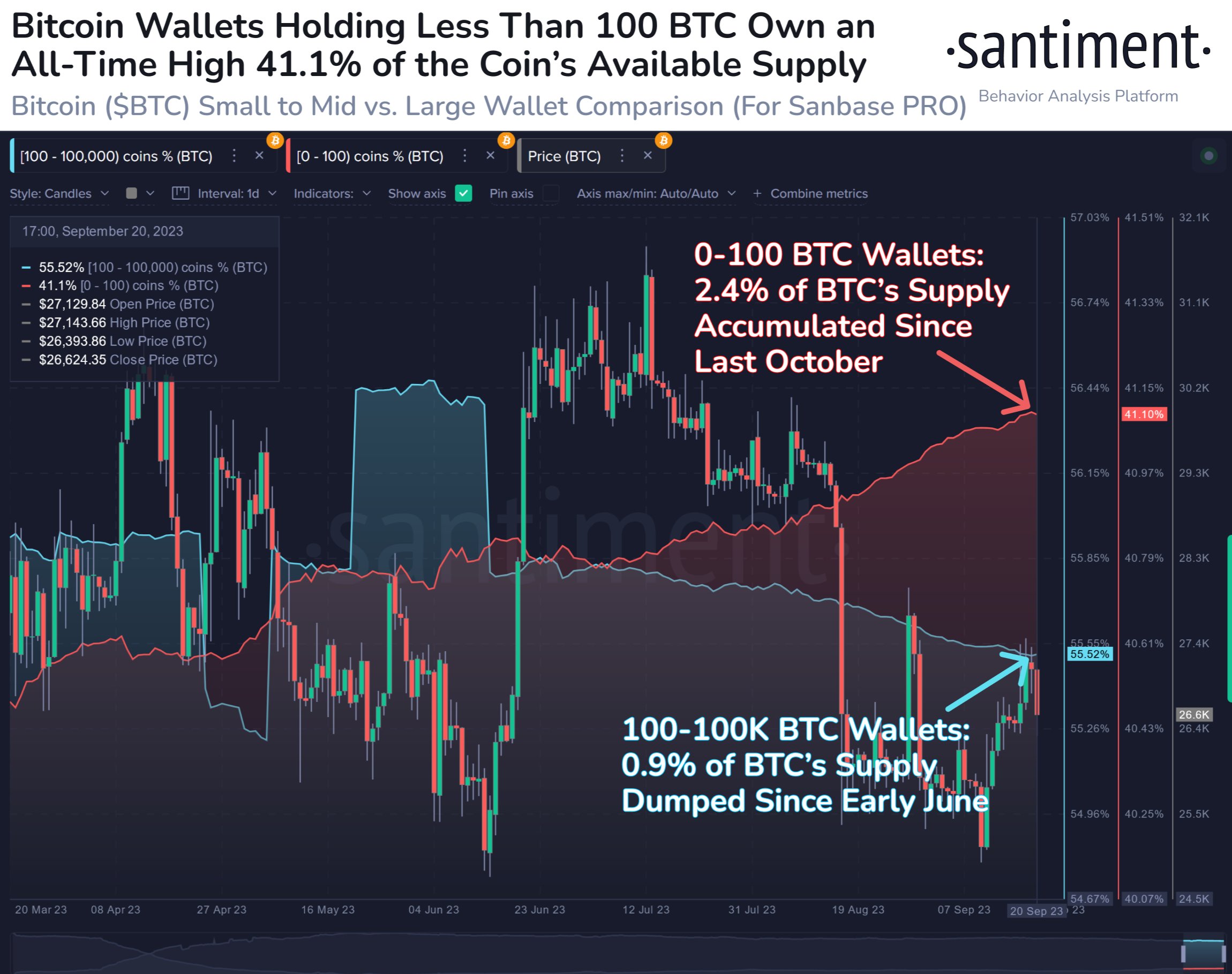
On-chain data shows that Bitcoin addresses carrying less than 100 BTC now control 41.1% of the total supply, a new all-time high.
Bitcoin Non-Whale Addresses Have Increased Their Supply Recently
According to data from the on-chain analytics firm Santiment, a shift has occurred in the BTC market during the last few months. The indicator of interest here is the “Supply Distribution,” which tells us about the total percentage of the Bitcoin supply the different investor groups hold.
Addresses or holders are divided into these groups based on the total number of coins they currently carry in their wallets. For example, the 1 to 10 coins cohort includes all investors that own at least 1 and at most 10 BTC.
If the Supply Distribution were applied to this specific group, it would measure the number of coins all the addresses fulfilling this condition as a whole are holding.
In the context of the current discussion, the investors of interest are those holding less than 100 BTC (about $2.6 million at the current exchange rate). Here is a chart that shows the trend in the combined Bitcoin Supply Distribution for all the groups that fall inside this range:
Looks like the value of the metric has been heading up in recent days | Source: Santiment on X
Generally, the addresses holding more than 100 BTC are considered the “whale” entities, so the holders with less than that amount would be the “non-whale” investors.
Because the whales carry large amounts in their wallets, they can carry some degree of influence in the sector. On the other hand, the non-whale addresses don’t have much individual power, but in terms of number, they make up the majority of the market.
The chart shows that the total percentage of the supply held by these non-whale entities has been going up on the Bitcoin network in recent months.
According to Santiment, this cohort has added about 2.4% of the total BTC circulating supply to their holdings since October, bringing their total to 41.1%, a new all-time high for the indicator.
On the other hand, the holders with 100 to 100,000 BTC (that is, the whales) have participated in net selling of around 0.9% of the asset’s supply since early June. With this dumping, their total holdings have dropped to 55.5%, the lowest since May.
While the selloff from the whales may cause concern for the cryptocurrency’s price in the short-term, the long-term view of the situation may not be so bad.
This shift of supply from these humongous holders towards more regular-sized investors could be positive for the asset, as it means that the whales, who are few, hold lesser influence in the market.
Still, the whales currently own most of the supply, so the cryptocurrency may not be considered sufficiently decentralized yet. If this shift continues, though, it may not be long before the balance shifts in the favor of the non-whale entities.
BTC Price
Bitcoin has recently observed a plunge below $27,000, as the asset’s price is now floating around the $26,600 mark.
BTC hasn't moved much since the drop | Source: BTCUSD on TradingView



















